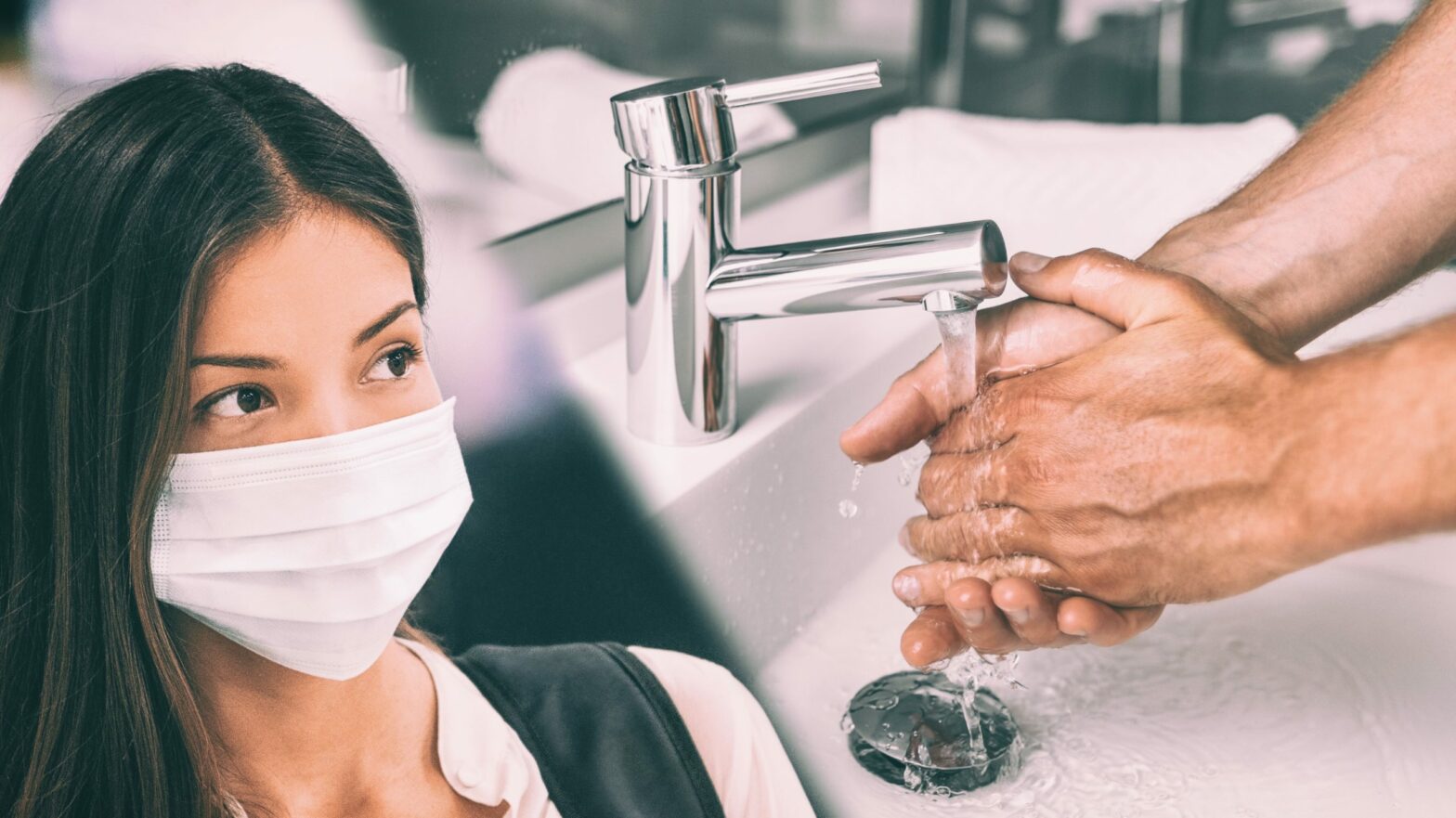The winter months always have a significant impact on productivity in the workplace, with sick leave and illness causing numerous absences in offices across the UK. This year, it looks like we also have the the threat of coronavirus to contend with.
It is therefore vital that businesses and their staff are aware of both the usual winter illnesses (such as Norovirus and other contagious diseases), and the new COVID-19 virus, how they are transmitted in an office environment and the steps they can take to reduce the risk of contracting them.
Simple changes to personal and workplace hygiene habits, or even office layout, could improve our chances of staying healthy and bug-free. In this article we will look at advice for businesses and their employees, as well as the specialist cleaning routines offices should be adopting to ensure a healthy working environment for their staff.
Here are some ways you can protect your staff from illness and keep your workplace healthy.
Promote good hand hygiene standards
Staff should be washing their hands regularly with good quality soap, and hand sanitiser stations should always be available. The most effective kind of sanitisers are alcohol based with a minimum of 60 per cent alcohol, which can form a gentle but long-lasting barrier across hands, protecting against germs for a few hours after use.
Wash your hands for at least 20 seconds, roughly the same time as it takes to sing Happy Birthday to yourself – twice!
Cleaning regimes
Ensure regular, thorough cleaning takes place in communal areas like a shared kitchen and washroom facilities. It is recommended that companies that have an open plan working environment, with only basic workday cleaning practices in place, undertake a professional deep clean at least twice a year to prevent the build-up of hidden embedded dirt and contamination.
Desk cleaning
Encourage staff to clean their desk areas regularly by providing anti-bacterial wipes and hand sanitising gels. Make sure that desk items are routinely cleaned– a previous study by Initial Washroom Hygiene found that the average computer mouse was home to more than three times the levels of bacteria-related contamination than the average toilet seat, and twice as many as on a flush handle.
Prevention of spread
Ensure staff who contract a virus stay away from the office for at least 48 hours after the symptoms have disappeared to avoid wider contamination of the workforce.
Further reading: What has good hygiene got to do with good business?
And there are also certain things your staff can do to keep themselves and others safe.
Practice good hygiene
Thorough hand washing after going to the bathroom and before preparing food is extremely important. It is recommended that you should wash your hands for the same amount of time it takes to sing the happy birthday song twice (approximately 30 seconds). Cleaning your desk area and associated equipment regularly also reduces the level of germs in the office.
Stop sharing
Try not to share items such as tea towels when using communal areas. These items can be home to high levels of bacteria and are often not cleaned regularly. Good alternatives include using tissue paper or hand towels from proper wall-mounted dispensers.
Prevention of spread
If you suspect you have Norovirus or a similar stomach bug, notify your employer and do not return until 48 hours after the last symptoms have disappeared. If you think it is coronavirus, follow the new NHS guidelines here. Remember that it is partly because we spend more time indoors in the winter, with the heating on and windows closed that viral illness spreads more easily.
Deep cleaning as an essential tool in your armoury
For infectious outbreaks to be eliminated effectively and quickly, all facilities should have a strategic cleaning plan in place. Specialist technicians are highly trained and well equipped, and have extensive experience in providing disinfection services to the highest standards.
Conducting specialist cleans in an office will help lower the risk of prevalent employee illnesses occurring. However, if an outbreak of an illness does occur, then it is advisable that premises’ managers get in touch with a specialist cleaning provider, who will be able to deploy the right service to disinfect the area.
One of the latest innovations in deep cleaning is ULV disinfectant fogging technology, which enables the treatment of large areas in a short space of time and with minimal disruption. Foggers generate a fog formed of Ultra Low Volume (ULV) droplets, which measure 5-50 microns (μm) in diameter.
Their small size means that they become suspended in the air and settle underneath, on top of, and on the sides of any objects, as well as other inaccessible areas. As a result, even pathogenic microbes that might be missed by manual cleaning methods are neutralised.
Fogging is recognised as a key weapon in the fight against Norovirus, which has more than 25 varying strains, and affects between 600,000 and 1 million people in the UK.
The virus, which is usually transmitted through contact with contaminated surfaces, can survive on a surface for a number of days after being touched by a person carrying it. Consequently, it can spread rapidly in densely populated areas with high footfall, such as open plan office environments.
It is also highly contagious, meaning that potential outbreaks need to be identified and dealt with quickly to prevent rapid spread. Using fogging technology, technicians can disinfect over 100 square metres in just a few minutes, limiting the spread of infectious disease almost instantly.
In addition to the use of specialist cleaners and the latest cleaning technologies, it is essential to encourage both staff and visitors to offices to take personal responsibility by following correct hygienic practices. By following these basic precautions, facilities and office managers can ensure the maintenance of a hygienic environment, and look forward to a more productive winter season.
>See also: A cultural guide to governance and risk






